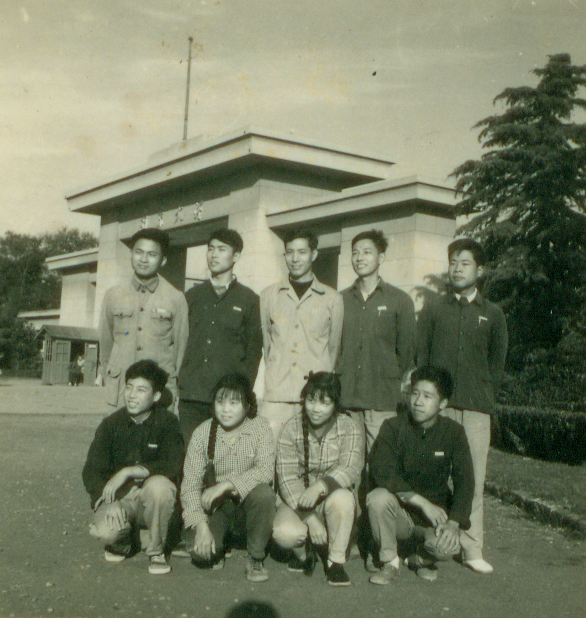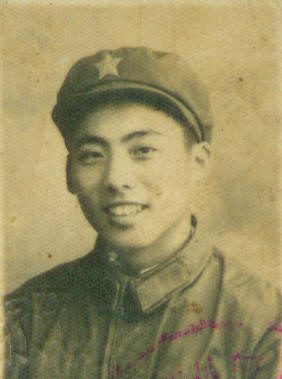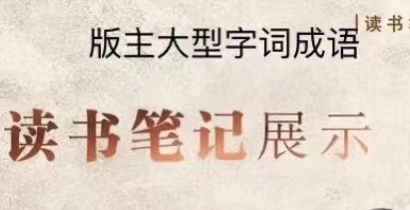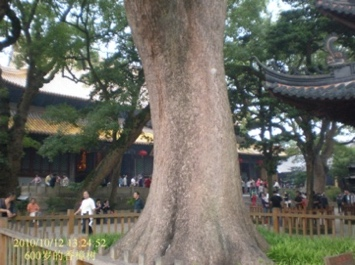Study Life of Year One and Two in University
During the senior middle school, I saw some pictures of Nanjing landscape, for example, the Mausoleum of Sun Yat-Sen, Mount Zijin(Purple) and the City Centre (Xinjiekou). Now I would live and study in the city soon, eager to get there. Elder brother Delin and the cousin Deming sent me to Nantong Harbor by bike, Delin carrying me and Deming my suitcase. It was the first time for me to sit in the big ship on the Yangtze River, which was extremely large and beautiful. It has four floors, including the bottom cabin, the length 70 to 80 meters long. I paid 3.2 yuan for a ticket in the fourth-rank cabin, having a bunk bed to sleep. Unlike a coach, the ship was very steady, as if you were at home. I got on the ship at night and the next morning I got up and could enjoy the beautiful scenery of the Mother River. The downstream was so broad that we often couldn’t see the banks esp. during the gloomy weather. I liked to stand at the front or the back of the ship to see the layer upon layer whitecaps raised by the plough of the ship. The tireless river gulls were following the ship closely, hovering up and down, rich in poetic and artistic flavor. Ancient people said, you can feel complete freedom of heart and ease of mind if you stand at the high top; your idea could fly a very far away if you see a flowing river. In Grade Two of the senior middle school I climbed to the top of Wolf Mount, now I saw the rolling Yangtze River with my own eyes with zero distance, I refreshed in spirit and was filled with the hope and yearned for a better and brighter future. Sometimes the ship stopped in the middle of the river. We could see a small boat in the distance approaching. When it got to the ship, we got to know that it came to send and pick up the passengers. After finishing its job, the oarsman or even oarswoman drove the boat by swinging the oar. I had never thought that on the Yangtze River there were so small boats floating. I admired the oarsperson’s bravery, and at the same time it indicated that in the downstream, the river is so friendly that small boats can float on it if there is no big wind. Such a getting on or off took too much time,which was the characteristic of that time and caused the trip from Nantong to Nanjing to last 24 hours. The ship was approaching the City of Zhenjiang, where there existed very beautiful river scenery. Mount Jiao is lying in the middle of the river, surrounded by green waves, and covered with luxuriant trees and the cushion-like grass, as if a green jade is floating on the river. The tourists got to the island by boat and stepped on it safely. All of us on the ship could see them clearly. Many tourists were climbing the mount step by step, some of whom were waving to us. It was not long before we saw the Jinshan pagoda on the Mount Jin, which had been overflowed by the white and dark green snakes described by the tale of the white snake. But I didn’t get excited at all because the Jin Mount was far away from the Yangtze River. When I was a kid, I liked to read the picture book of the tale, where the Mount was close to the river so that it could be overflowed by the two snakes, using the magic power, forcing the Monk Fahai to obey in the temple on the top. Now I grew up and became an adult, I should have a clear idea about the myth.
Although it took me 24 hours to get to Nanjing by ship, I didn’t get bored in the least. We didn’t get to the Zhongshan Wharf until the dusk of the second day. As soon as I came ashore, I saw the students from the Nanjing University and we were warmly welcomed by them. They help me place my suitcase on the school truck and led me to take the bus to the Gulou (Drumtower) Stop and then went to the school on foot. When I got to Nanyuan (South Court) I saw my suitcase already there. When I entered the South Court I saw a line of desks, each of which has a sign telling you where you could be received. I showed my admission note to the persons of the Department of Foreign Language and got the key to my living room, food tickets for a week, the information about when and how to register and the arrangements of activities after the registration. I neither paid money nor handed in the grain coupons. I went to the dormitory, carrying small luggage and a receptionist carried my suitcase. All were arranged in good order and for the first time I enjoyed such an enjoyable treatment, feeling very gratified. University, after all it was the university. Wonderful, what a charming place it was!

Eight Mates in the Small Class with Our Political Coach
All the arrangements were completed and we were ready to have lessons. However, I’d like to mention the life first. On entering the cafeteria, I felt very surprised because of varieties of foods. Besides porridge, there were mantou (steamed raised flour), mantou with salt and onion, leavened cake, cruller and fried mantou for breakfast. We had more varieties for lunch, 0.15 yuan for vegetable with meat slice, each lion head made of pork costing 0.10 yuan, two of which satisfying your craving and red-roasted pork for 0.30 yuan. For supper there were all kinds of vegetables. Such a life could not compare with that in the middle school. Since I could remember I had been eating salted vegetable for the breakfast and supper until the graduation from the NCMS. What Great changes had take place in the meals! It was not surprising that one sentence of the letter I wrote to parents was that “the dish for supper is equal to that for lunch at home”.
In 1964, the German class enrolled 64 students, divided into four small classes, Class A, B, C and D, each 16 students. That year, China established the diplomatic relationship with the first western country, France. The government expected to have relations with more and more western countries, so the department of the foreign language enrolled much more students than ever before. Grade One of English, French and German all had more than 60 freshmen, who would study for 5 years. In addition, more than 200 students would study French for three years, and many French teachers came from France. When the enrollment work was finished, Spanish class was to admit students suddenly and asked some students who had been informed of studying Russian to major in Spanish. In the name list of us 64 students, my name was the last one, with the 16 girls first and then the names ordered by the number of strokes of each one’s surname. The Chinese “宋”(Song) didn’t have a lot of strokes. Why my name was placed at the end, which made me puzzled. Later the teacher in charge of the enrollment work told me that I was one of the two students who were also asked to study Spanish. The Ministry of Education didn’t agree to change the enrollment plan of the German students and both of us were returned to continue to major in German. All the student ID numbers were decided and I had to stand at the end of the name list.
64 students came from Shanghai and all districts of Jiangsu Province. Some came from the famous middle schools of the province such as Suzhou, Changzhou, and Yangzhou Senior Middle School, plus some children of high-ranking officials. The girl of the air force commander, Caiqian Zhang, was also on the list, but she had not registered. It was said she went to a military academy instead. There were children of department chiefs of the provincial level, the municipal mayors and division commanders. A girl student came from Indonesia. All those classmates were invisible pressure upon us coming from the countryside. There were also a lot of students coming from the northern part of the province, Xuzhou, Huaiyin, Yancheng and Lianyungang. Judging from their clothes and behavior, I could know they lived in poorer areas than Nantong.
About a month later, the stipend was evaluated, which I had never thought before. As mentioned above, I had always thought that once I became a college student, the state would support me. Nanjing University was a comprehensive one, not a normal one, whose students didn’t need to apply for the stipend and all could get meal tickets and some pocket money monthly. At that time, the standard living expense was 16 yuan a month, with 14 for meals and 2 as spending money. Only those who were extremely poor could get 16 yuan stipend a month. I applied for 14 yuan, which, I thought, could solve my meals, and parents’ burden could be decreased. Unexpectedly, all thought that although the living standard of the people of the District Nantong was not as good as that in the south of the Yangzi River, it was much better than that in the northern part of Jiangsu. Accordingly, my stipend was only 12 yuan a month, which meant that parents had still to support me 4 yuan a month. Furthermore, I wanted some new clothes, and when I got home, the traffic would cost me some money. In the night when the stipend was published, I could not fall asleep. I had the feeling that the college was not as good as I had imagined. For me parents had to continue to work hard for five years. Mother grinded rice flour for a food shop, one jin for 0.02 yuan. She had to grind 100 jin for 2 yuan. The ultra-left tide of thought in the Communist Party began to overflow, and the popular slogan was cutting the tail of the capitalism, causing my family to stop every business. Father had to pick up the old traditional trade of my family: making clothes by hand for other people. One younger brother and two sisters were still children and parents had to feed them. What a heavy burden for parents! How compunctious I was feeling!
I forced myself to stop think of it and began to work hard on my lessons. As mentioned above I felt pressure in the class, which urged me to grasp every minute to study. So many years in the school made me realize that in order to stand in the class, I had to make a real success in the study. Poor as you were, and no beautiful clothes to wear, you would not be looked down upon by others. The scenery of Nanjing was charming, however I dared not think of playing. On Sunday morning I didn’t have a long lazy sleep and still got up early to read German words. It was very convenient to train 16 students in a class. Everyone had the chance to repeat the new words and sentences without standing up. It was difficult to repeat a very long sentence. A few of us could say a long sentence without breath while most others were very afraid and often made mistakes in repeating. As time went on, we were asked to repeat or retell a long paragraph or to design a linguistic context with the expressions or idioms given, which meant that you had to say somewhat a long time. My repetition speed was quicker than many of us and soon I was confident in class. I especially liked to design a situation and tried hard to make it humorous to make the class lively. At the end of the first term, the report said that my written examination was 90 and oral one 85. In my small class, only one student got two 90. I was the second one of 16, which made me feel at ease.
One Sunday afternoon I went to Xuanwu Park to play with Weigang Dai, who also came from the NCMS and now studied in the philosophy department. Suddenly we saw an attracting car stopping by us (there were few cars at that time), out of which got off a pair of foreigners and a female interpreter, who was young, tall and white. They were talking and laughing merrily. Such a scene was naturally attracting me, as a foreign language student, and also made Dai feel novel and have the esthetical sense. Both of us couldn't help following them, and our admiration could not be covered. Dai told me that he regarded me with envy because I studied German, and I would also sit in a car and accompany foreigners everywhere to play in the future. I didn’t know how to response and thought if it was true, how marvelous it would be.
One day in the second year, the instructor teacher called Fengying Hou (a female student) and me to come to a classroom, telling us that there were two education specialists from East Germany, who paid a visit to our department and wanted to see some students. We were required to get ready. But he said that the leader of our department tried hard to ask the foreigners not to talk with the students. If they insisted, the leader might lead them to come to see us. I could see from the classroom we were in that two foreigners were accompanied by a teacher and entered the building of our department. We waited and waited until the instructor teacher came, saying that our department leader cancelled their desire to see us, finding an excuse. How pity it was! The good chance to practice our oral German was lost, which made me very uncomfortable.
During the summer vocation of 1965 we went to Suqian County to be armymen for two months.

photo in army's clothes
We had only four terms of German lessons (two years) before the Great Cultural Revolution broke out in June of 1966. We had only three school reports, with the fourth terms having no examinations. In the second and third term I was in the lead of the class. Of 64 students, I was one of the first five students. I only admitted two were stronger than me and I dared compete with anyone else. I didn’t have any fears. We could not have German lessons because of the Cultural Revolution and my mind was full of dissatisfaction. According to my plan, I intended to fight for 5 years and graduated with top achievements. I hoped to work on an ideal position. The whole teaching activities stopped, which caused me feel confused about the future.
Dec. 1, 2008 in Melbourne
Proofreading on Jan. 30, 2012 in Chicago
Uploading on Aug. 4, 2023 in Xuzhou









